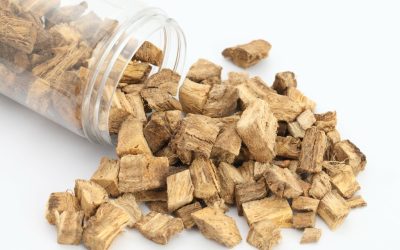Amy Scanlon, MD, FACC, is a practicing private practice cardiologist at Consultants in Cardiology and the current team cardiologist for Seton Hall University. Dr. Scanlon has authored several published articles including the American College of Cardiology’s Preparticipation Cardiovascular Screening for Adolescent and Young Adult Athletes module. He frequently lectures and participates in speaking engagements for the American Heart Association https://ecosoberhouse.com/ and the American College of Cardiology. For symptomatic low blood pressure, resting in a lying or sitting position helps prevent falls. Alcohol, or ethanol, is absorbed primarily through the stomach and small intestine and metabolized mainly by the liver.

How much weight can you lose from quitting drinking?
Furthermore, we visually inspected the forest plot to check whether there were any non‐overlapping confidence intervals indicating heterogeneity. Last, we attempted to explore the reason for heterogeneity by looking for clinical and methodological differences between trials. The molecular mechanisms through which alcohol raises blood pressure are unclear. Alcohol can affect blood pressure through a variety of possible mechanisms. Previous research suggests that acute alcohol consumption affects the renin–angiotensin–aldosterone system (RAAS) by increasing plasma renin activity (Puddey 1985). The RAAS is responsible for maintaining the balance of fluid and electrolytes.
Pitsavos 2004 published data only
The type of alcoholic beverage also determines the impact on health, with red wine being considered healthy, for instance, due to the high polyphenol content. Most importantly, masked hypertension, where patients are hypertensive at home but not in the doctor’s office, is as serious a health risk as sustained hypertension. For men, drinking about two standard drinks can increase blood pressure in the short term. For women, the number of drinks necessary to produce this effect may be lower. More research is needed on the specific effects of short-term alcohol use on blood pressure in women and people with other health conditions.
- For remaining studies, we (ST and CT) retrieved full‐text articles for further assessment.
- The evidence synthesised in this review was collected from 32 RCTs in 767 participants.
- Much of the current literature on alcohol does not mention the hypotensive effect of alcohol or the magnitude of change in BP or HR after alcohol consumption.
Need To Talk To A Provider?
- Both ST and CT independently assessed studies for inclusion or exclusion and assessed the risk of bias of all included studies.
- For example, alcohol can affect calcium levels, cortisol levels, and baroreceptor sensitivity, all of which can lead to increases in blood pressure.
- Different genetic variants of ADH and ALDH enzymes have been found to show strikingly different rates of alcohol metabolism among different races (Chen 1999; Peng 2014; Agarwal 1981).
- We noted some overlap of data points in some funnel plots, indicating that some of the included studies were of similar size.
- We tested the effect of cross‐over trials through sensitivity analysis by excluding them from the meta‐analysis to check if the effect estimate changed significantly.
For the past 17 years, Christina has been managing the Health and Wellness Department at EAS in Watsonville, CA. Christina has volunteered for many years with Flying Doctors, a humanitarian group that provides health services to underdeveloped areas in Mexico and Central America. She also gives her time to Tara Home, an end of life/hospice care home at Land of Medicine Buddha in Soquel, Ca.

Participants were adults (16 years of age or older) with systolic blood pressure (SBP) greater than 140 mmHg and diastolic blood pressure (DBP) greater than 90 mmHg, and SBP ≥ 130 or DBP ≥ 80 mmHg in participants with diabetes. With moderate doses of alcohol, blood pressure (BP) went up for up to seven hours but normalized after that. A biphasic response was observed with high doses of alcohol, with an initial decrease in both systolic and diastolic blood pressure (SBP and DBP, respectively) for up to 12 hours, increasing at more than 13 hours from consumption.
If you fall into any of these categories, talk to your doctor or a healthcare professional about safe levels of alcohol consumption, if any. Binge drinking is when you drink a large amount (more than 6 units or 2 large glasses of wine) in a short space of time. It can cause significant spikes in blood pressure with repeated binge-drinking episodes leading to long-term increases in blood pressure. You may have read that some alcoholic drinks, like red wine, are better for your health than others. But too much of any type of alcohol will negatively affect your blood pressure.
- A doctor may recommend a person with hypertension not to consume energy drinks.
- However, there were far fewer studies that focus on African Americans for the researchers to review, and more research may be needed.
- Excessive drinking has been reported as a significant cause of mortality, morbidity, and social problems (Kaner 2018, Rehm 2017).
- Cortisol increases the release of catecholamines, which are chemicals in the body that help regulate many processes and help keep the body functioning as it should.
Heavy drinking indicates more than three drinks per day or seven weekly for does alcohol cause high blood pressure women and four daily or 14 weekly for men. These ongoing high alcohol levels seriously deteriorate cardiovascular function. The findings of this review support the current recommendations to avoid alcohol. The regular consumption of over 30 g/day of alcohol increases hypertension risk in linear proportion to the dosage and may independently cause cardiac damage in hypertensive patients. In fact, over the long term, Blacks appear more prone to BP elevations than Whites or Asians. In one study, the risk for high BP among men increased by a fifth with 1-2 drinks but by half and three-fourths with 3-4 and 5 or more drinks a day.

Giovannelli 2011 published data only
Study authors mentioned Sober living house only that acute ethanol administration caused a transitory increase in BP at 20 minutes. Karatzi 2013Maufrais 2017 and Van De Borne 1997 measured blood pressure before and after treatment but did not report these measurements. The dose of alcohol had to be reported by study authors for inclusion in the systematic review.
Chiva‐Blanch 2013a published data only
As you cut back on drinking, reducing the intensity of each episode is just as important as decreasing total amounts. Prioritizing mindful, moderate habits better supports healthy blood pressure. Notably, studies have shown that alcohol dehydrogenase variants occur in different individuals and that categorization according to variant nullifies the protective effect of moderate alcohol intake. Over two billion people drink, with the highest per capita consumption in the European Union (EU).